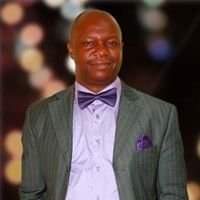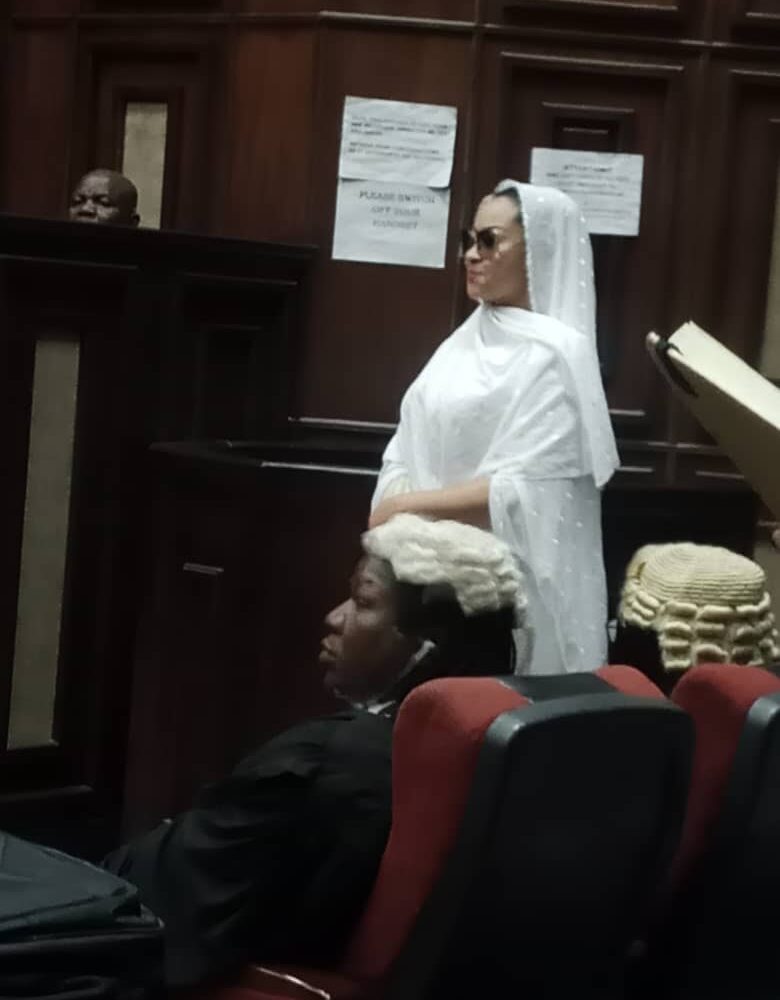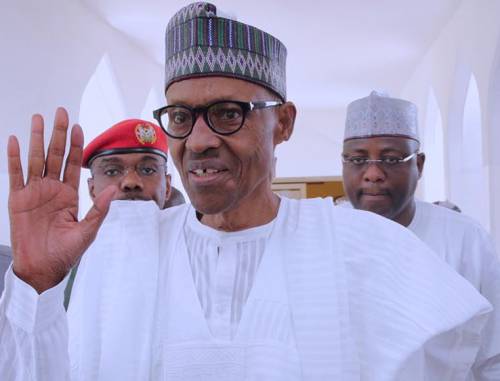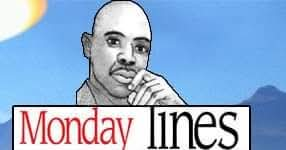Separating the Nigerian from his politics and religion is almost like a man trying to forcefully pull off a strand of hair from his moustache. It is akin to trying to prise off the glue that wedges Siamese twins together. Yoruba social worldview also offers an explanation of this difficulty. At a bandstand gig for Alhaji Danjuma, Kano-born wealthy entrepreneur of the 1970s, owner of the defunct Agege Cinema and a man known in the Lagos social circuit as Yaro Maikudi, late Apala music exponent, Ayinla Omowura, had explained why he showered panegyrics on fans who decorated his forehead with crisp Naira notes. For Ayinla, spenders who forcefully retrieve themselves from this adhesive wedge relationship between money and its spender deserve appreciation. “Irun’mu l’owo o, ko sai han s’anybody pe ko ma se fa tu, eni na mi l’owo, ma s’aponle won,” he had explained.
Politics and religion in Nigeria share that incestuous relationship between the owner of a moustache and his strands of hair. They are barely separable. For politics and religion, the intimacy may be due to the many points of convergence that they share, as well as the complex relationship between them. What most fittingly explains that adhesive wedge relationship is a queer news item which came up last week. Three suspects were charged to court in Lagos for their role in the killing of a sex worker, Hannah Saliu in a Lagos suburb known as Alaba Rago, and setting her corpse ablaze thereafter. Her crime: She had the temerity to keep the Holy Quran in her room where she engaged in the illicit trade of prostitution. One of the suspects, who was her customer, had raised the alarm after an allegation of stealing which resulted in the search of Saliu’s room and the discovery of the holy book underneath her pillow.
Since the primaries of the two leading political parties in Nigeria, the Peoples Democratic Party (PDP) and the All Progressives Congress (APC) were concluded, resulting in the victory of a Northern and Southern Muslim as flag-bearers of the parties respectively, the issue of who would be their running mates has been on the front burner. While the PDP dilemma in this regard was more zonal than religious, it was easier for the party to pick a Christian candidate than it is for the APC. As we speak, passions have been inflamed, hats thrown into the ring in argument for each of the divides. Emotions are running at the highest Fahrenheit as well on why the APC flag-bearer must not commit the self immolation of picking a Muslim as his vice presidential candidate.
The Christian Association of Nigeria (CAN) then upped this dilemma. It warned the two presidential candidates against picking running mates of their own religious persuasion, stating that doing so would amount to a disruption of and threat to Nigeria’s fragile peace.
“Any party that tries same religion ticket will fail. This is not 1993. Even when we have a joint Muslim/Christian ticket, the church still goes through hell. Only God knows the number of Christians that have been killed in the last seven years with no one apprehended or prosecuted. Imagine how bad it will be if we have two Muslims in power? The extant Nigerian Constitution promotes religious balance. So, if any political party wants to try Muslim/Muslim ticket, it’s at its own peril. CAN is only forewarning but will make a categorical statement in the event our warning is not heeded,” said Joseph Daramola, CAN National Secretary.
Political pundits have however literally said that CAN was merely ranting. If an APC Southern Muslim candidate would stand a chance of defeating a northern candidate who, by reason of hailing from the north, has huge voter demographics in his kitty, this APC Southern Muslim candidate would be committing political suicide if he picks a Northern Christian as running mate, they say. The equation for this Southern APC candidate gets even worse amid rumours of a suspected gang-up by top northern political barons in the innermost recess of his own party. Their plan, says this rumour, is to allow the north continue in office by subterfuge. With all these as reference points, pundits then submit that the issue at stake is not moralism of the pulpit, not the ecclesiastical realism that CAN is shouting about, nor is it even the Nigerian constitution which requires ethnic and religious balancing. It is political realism.
In his seven years of being in office, President Muhammadu Buhari has promoted the bigotry of religion and region, so much that in an earlier piece I did, I predicted that he would be the last Nigerian president; the last president from whom would be expected a pan-Nigerian mindset, that is. My thought is that, it would be very difficult for Buhari’s successor in office, especially if the person hails from the southern part of Nigeria, not to be cozened into administering Nigeria along ethnic and religious fault lines as Buhari did. The current APC dilemma on the religious colouration of its vice presidential candidate is a direct outflow from the war Buhari waged in his years of being in power against what is right and acceptable for a plural society like Nigeria. Otherwise, a well-run Nigeria with a leadership that is sensitive to the issue of region and religion would have easily got away with its choice, not minding its deviation from what is right.
There is no doubting the fact that, because Nigeria is not a nation, it is sharply divided along fault lines. Two of such lines are religion and ethnicity. What we have is a meaningless but stiff competition between Islam and Christianity which threatens the co-existence and stability of Nigeria. If we want to get politics to evoke similar emotion as and become the kind of unifier that soccer is, we will be looking for a white falcon. Religion has become one of the most divisive tools of politics.
In Nigeria, religion is the most inconsistent and inaccurate of all the indices that can be used to measure plural reality. Ethnicity, culture and language are better units of measurement. They can successfully rally groups together while religion does not possess such power. This is why, till today, northern Muslims do not consider their Southern counterparts as representing the true expectations from a “pure” Muslim. They can never see the APC presidential candidate as a true representation of their Islamic religion. This situation is however better in Christianity. Even at that, a Northern Christian does not evoke total Body-of-Christ feeling from counterparts in the South, as much as ethnicity or language does. Having said this however, the reality is that religion is still a potent force that should not be discountenanced.
Ordinarily, religion should not be a determinant factor in the consideration of who administers a country like Nigeria. While the two dominant religions shouldn’t determine who we are, taking into consideration their foreign origin, Nigerian religious leaders haven’t done better. They have quashed all the goodwill they attracted two centuries earlier. They have also proved to be grossly self-centered, bothering less about the souls of their congregants and fascinated mainly about the material wealth that they are able to make for themselves out of the grief of the people.
Nigerian religionists have been as hypocritical as the man who patronized the sex worker and who killed her because she was found with a Quran. This is because it will be difficult to divorce clerics and Imams from the festering crises of nationhood in Nigeria. It is the same way that the man who patronized the prostitute could not divorce himself and is indeed contributive to the fact of her prostitution.
Religion and its hypocritical jealousies are one of the ills plaguing Nigeria today. Petty jealousies among competing religions have ruled the airwave. It is why politicians don’t regard religious leaders because they both play dirty politics. The church and mosque have stopped performing their traditional democratic utilitarian functions in society. These functions are: promoting democratic values and norm; helping to critique the conduct of governments in power on the pulpit and in mosques; encouraging political participation; articulating and aggregating the interests of the people in sermons and serving as avenues for the development of leadership skills.
Having said all the above, while the decision to choose a running mate from same religious faith as its flag-bearer’s may not signal rejection at the polls for the Southern APC presidential candidate, his atimasebo for his Southern Nigerian people and specifically to his Yoruba race will come to play. In this instance, it is questionable and will weigh against him. In weight, this will count more than the fact of his affront on the religious sensibility of his people by choosing a northern Muslim. Atimasebo is a very deep Yoruba word whose metonym is precedence. Apart from empowering individuals which some people have reasoned was targeted towards achieving his lifelong ambition which he has now achieved, what institutional support has the candidate given to the south, such that he expects people of opposing religion from his to appreciate and then discountenance the power of their religious affiliation?
By the way, readers will bear me out that I have never hidden my belief that the choices which the APC and PDP have provided are choicelessness. However, in this midst of this hopelessness, I am beginning to develop a very optimistic horizon. Peradventure, in the midst of the seeming hopeless candidature of the leading flag-bearers of the two leading political parties, can we keep hope of redemption alive?
The optimism has two faces. One is that, being in their 70s and aware that this may well be Providence’s last bus-stop for them, perchance either of the two candidates becomes the Nigerian President, can’t he be persuaded to be redemptive in his governance attitude and prove pundits of failure like me wrong? Coming into office with one of the most pessimistic estimations ever, due to their very unpleasant past, anyone of the two candidates who becomes the Nigerian president may see the presidential office as an opportunity to redeem himself and secure eternity in the hearts of Nigerians; become an Obafemi Awolowo who is still seen as the governmental ideal, 63 years after leaving office.
The case of Moshood Kasimawo Abiola may convince either of the highly tar-brushed incoming president on this. An ultra-conservative who was grossly disdained for his role in ITT, alleged takeovers of government in Africa and attacks against Yoruba leaders, 1993 was a redemptive moment and U-turn juncture for MKO Abiola. He seized the moment, thereby securing an after-life at death in the hearts of the people. Wouldn’t the man who may become president of Nigeria among the two candidates of APC and PDP want such redemption for himself?
Second, being ultra-capitalists who know that they can only succeed in feathering their acquisitive nest only if there is development in Nigeria, either of the candidates who becomes the Nigerian president may be persuaded to fix the contentious infrastructural deficit that has plagued Nigeria and make the country better. It is in his capitalist interest. Whichever one becomes president is very likely going to be different from an Islamicist-minded, pseudo-socialist president like Buhari whose major advertised acquisition in life is a herd of cows that hasn’t increased in years of owning them. Is this possible?





